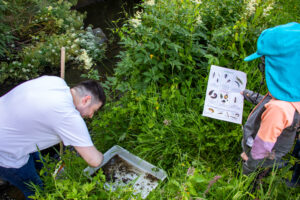IRD Duhallow has placed sustainability at the heart of its education and training strategy, ensuring that climate change awareness and environmental stewardship are embedded across its curriculum. Recognising the urgent need for rural communities and industries to adapt, the organisation has developed programmes that provide practical, science-based knowledge to support sustainable development while meeting national and EU environmental targets.
A flagship achievement is the Level 7 Certificate in Sustainable Dairy Development, created in collaboration with academic and industry partners. This innovative qualification equips farmers with advanced skills in climate-smart agriculture, sustainable herd management, nutrient efficiency, biodiversity protection, and compliance with evolving environmental regulations. By combining academic rigour with real-world farm application, it is helping to future-proof the dairy sector while reducing its environmental footprint.
Beyond this, IRD Duhallow is currently developing new training modules that will expand sustainability education further. These include:
- Soil Science 2 – Sustainable soil management.
- Farm as a business-family farm business, finance also wellbeing and farmer health.
- Climate change: challenges and how the dairy sector can adapt and mitigate.
- Ecology and biodiversity.
- Agriculture Policies and Directives
- Water and Air Quality
- Animal Welfare, Genetics
- Community Biodiversity
By integrating environmental priorities into its training portfolio, IRD Duhallow is equipping participants with the knowledge and tools to thrive in a low-carbon future, while making a tangible contribution to Ireland’s climate action goals.
Through initiatives such as the EIP and Blue Dot programme, IRD Duhallow has worked to protect and restore high-status water bodies. Public workshops, school visits, and community clean-up days promote hands-on learning about biodiversity, pollution prevention, and sustainable water management.
The organisation also works closely with farmers, SMEs, and voluntary groups to deliver sustainability-focused events, from climate-smart farming demonstrations to energy efficiency audits for rural businesses. Collaborations with educational institutions and environmental groups have expanded the reach of these programmes, ensuring that expertise, resources, and innovations are shared across networks.


